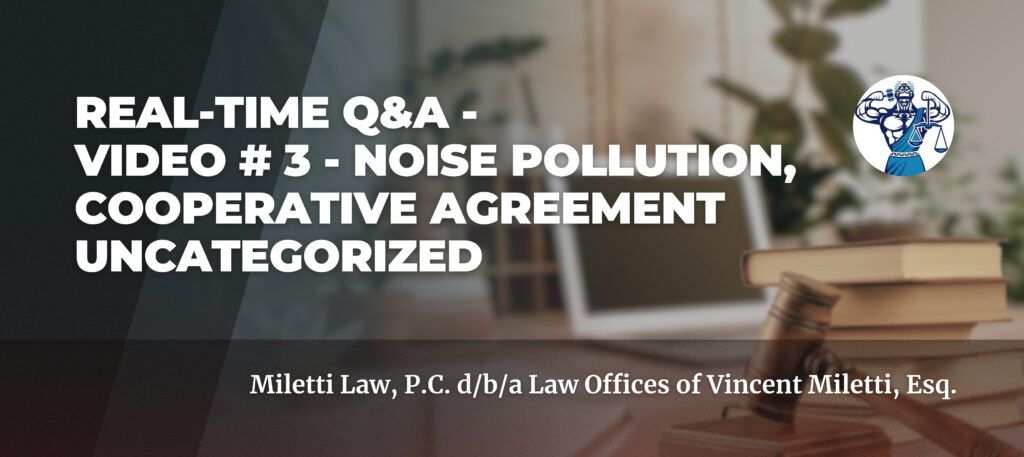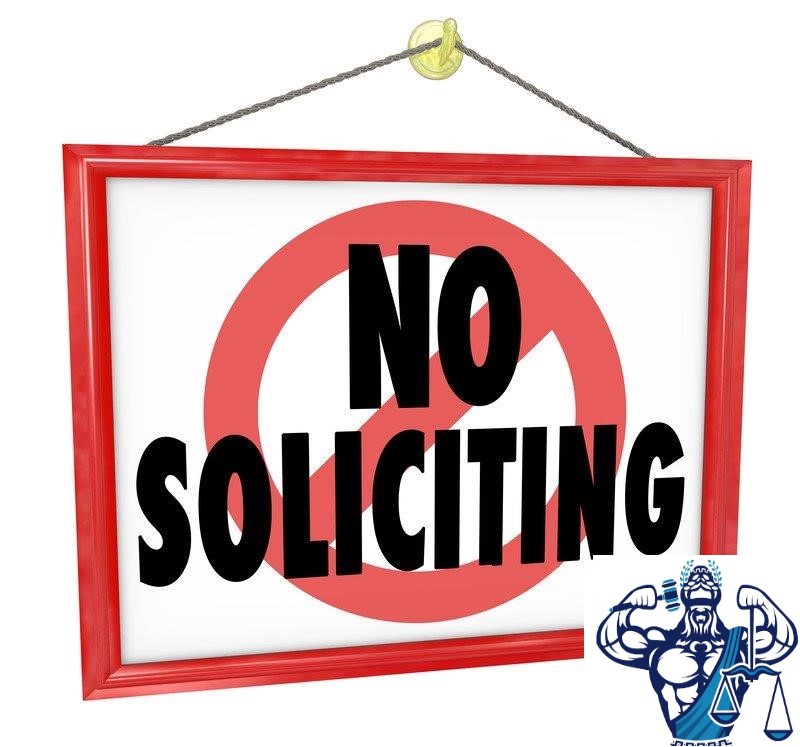Are you looking for legal representation? How much do you value your time and hard-earned money? Then look no further because whenever you require legal representation, the Law Offices of Vincent Miletti, Esq., the Strongest Name in Law, got your six. We are the authoritative force in Employment & Labor Law, providing diverse legal services in both a traditional and online, web-based environment, whether it be for small or large-scale businesses on a panel or a case-by-case basis. Hitherto, serving as primary counsel or cumis counsel, we are not only taking over the industry when it comes to Employment Defense and Employment Practices, but also in Intellectual Property Defense (Trademark, Copyright, and Proprietary Information), Management Side Defense, Regulatory and Compliance, Business Law & Corporate Law, and Professional Liability, among others. Whether serving directly or on behalf of a third party (EPLI, D&O, E&O), we stay unusually motivated® to take on all your needs!
You can agree with us that, at times, getting the right legal representation and finding a good attorney feels like trying to catch a fish while running away from a twenty-foot high tide, especially when time and money are of the essence and the pressure of getting results before you move too far down the rabbit hole is building up. Certainly, only when you desperately need reliable legal representation, probably not from the types of Saul Goodman, will you understand the importance of having the right attorney by your side. So, do you need an attorney with the skills and legal expertise that match your needs? Operating in Brooklyn, New York, the larger New York City, and New York State, as well as in the firm’s new office located in Astoria Queens, your life-changing encounter with Vinny Miletti Esq., the founder and owner of Miletti Law®, whose legal expertise, knowledge, and experience has grown immensely over time since the firm first opened its doors is just an email and/or a call.
Still, in addition to providing legal services, you can concur with us that information is power, and, as such, we have diligently committed ourselves to creating a range of authoritative, trustworthy, and engaging content available on our website and social media platforms. In this regard, feel free to visit and follow us on Facebook, Instagram, Twitter, Yelp, and LinkedIn via the website, as well as subscribe to our Blog, YouTube Channel, and News Letter through https://milettilaw.com/blog and https://www.youtube.com/@MilettiLaw, and https://milettilaw.com/#7665b240-0790-4562-ac0f-9444f9f5165a, respectively, to enjoy such content aimed to keep our unusually motivated® readers informed about how diverse legal issues affect them and/or their businesses.
In this regard, this blog is Part XXX of our series, “Key Employment Law Issues for Businesses & Companies in New York.” In Part XXIX, we provided insight into how to address discrimination claims, an issue that may arise when employees are required to sign contractual covenants, and mentioned that it is critical for employers to understand that pursuant to N.Y. Gen. Oblig. Law § 5-336(2), the law requires employees or potential employees to be notified that an employment agreement or contract provision, entered into on or after January 1, 2020, does not prevent them from cooperating with law enforcement or participating in an investigation with (1) a self-retained attorney duly permitted and admitted to practice law, (2) a local human rights commission, (3) the New York State Division of Human Rights, (4) or the Equal Employment Opportunity Commission (EEOC).
In our next blog titled “A Whistleblowing Exceptions in Confidential Covenants/Agreements,” we have reviewed why it is crucial to consider the issue of “whistleblowing” when drafting confidentiality covenants.
Whistleblowing Exceptions in Confidential Covenants/Agreements
With the country becoming more litigious every day, employers should be careful to address key employment issues such as whistleblowing that may have a significant impact on employee rights. For this reason, employers should ensure that employees have been provided with proper notice of their rights when confidentiality covenants/agreements are being drafted.
For instance, an employer should, as a best practice, make sure that language through which “whistleblowing,” in every sense of the concept, has been explicitly excepted when provisions concerning confidentiality require being included in agreements, as well as in other covenants by which whistleblowing could be deterred.
Pursuant to 18 U.S.C. § 1833, the Defend Trade Secrets Act (DTSA), as discussed in our blog titled “Provisions for Notice & Whistleblowing under the DTSA” and accessible through https://milettilaw.com/blog/f/provisions-for-notice-whistleblowing-under-the-dtsa, requires exceptions and provisions that explicitly state that employees are allowed to participate in government investigations and/or cooperate with government agencies, even if it requires them to disclose trade secrets or confidential information, to be carved out in confidentiality covenants.
As codified under the statute, as long as a disclosure of trade secrets is made solely with the intention to investigate or report a law violation or made in confidence to government investigators, the exception or provision in a confidentiality covenant should make it clear that the employee involved in the disclosure would neither be civilly or criminally liable.
In our last blog under this series titled “N.Y. Law on Determining if Information Constitutes Trade Secrets,” we will review several factors that are considered by New York courts when determining whether information, which may be allegedly stolen, misappropriated, disclosed, or used constitutes a trade secret.
As usual, stay tuned for more legal guidance, training, and education. In the interim, if there are any questions or comments, please let us know at the Contact Us page!
Always Rising Above the Bar,
Isaac T.,
Legal Writer, Author, and Publisher.
 Professional Legal & Business Services And Representation - English & Espanol!
Professional Legal & Business Services And Representation - English & Espanol!

 314-648-2586
314-648-2586 CALL US NOW
CALL US NOW








